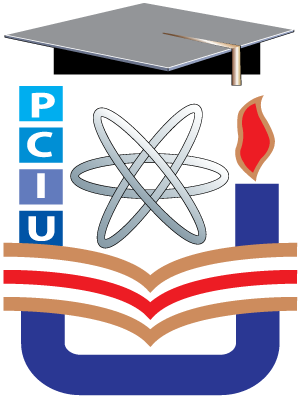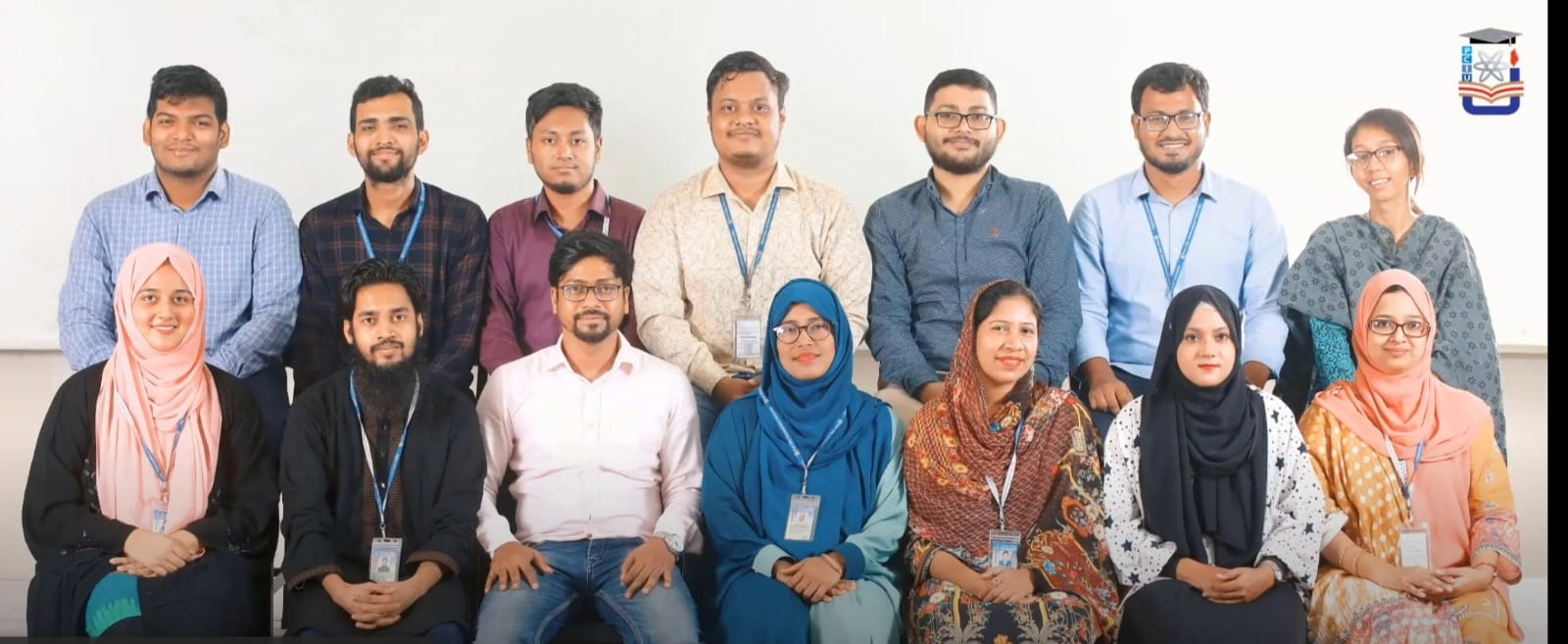Department of Computer Science and Engineering
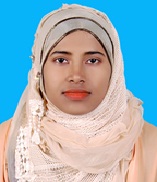
Welcome to the Department of Computer Science and Engineering. The goal of our department is to facilitate our students to be the best computer engineers and contribute to the development of our nation as well as the whole world with their creativities. We also have our faculties with their best knowledge and research activities. Our faculties are also so friendly and helpful to our students. Hence the relationship of teacher-student is very friendly and powerful here. Students get extra-curricular activities for their betterment. We also help students how to build a career easily in a competitive world. Department helps the students academically with different activities such as seminar, workshop, programming contests, training on different related topics. Choose the best one to be the best and stay safe.
Vision of the Program
The vision of the Computer Science and Engineering Department is to provide its students with the knowledge and skills to solve a variety of Computer Science problems as well as advanced engineering research.
Mission of the Program
The missions of the Department of Computer Science and Engineering are:
|
M1 |
To provide fundamental software skills and professional IT values. |
|
M2 |
To equip the graduate to develop software-based solutions to problems in a variety of contexts. |
|
M3 |
To have curricula those conform to the highest international standards. |
|
M4 |
To give a grounding in all the core areas of computer science. |
|
M5 |
To emphasis on the most state-of-the-art ways of software engineering to be used in the IT industry. |
Program Educational Objectives (PEOs)
The Program Educational Objectives (PEOs) of the Department of Computer Science and Engineering are:
|
PEO1 |
Prepare graduates to have knowledge and competency for careers in Computer Science & Engineering and related domains |
|
PEO2 |
Prepare graduates to become leaders in fields related to Computer Science and Information Technology |
|
PEO3 |
Pursue higher education in Engineering or other Professional fields |
Program Learning Outcomes (PLO)
The Program Learning Outcomes (PLOs) for the Department of Computer Science and Engineering are:
|
PLO1 |
Apply knowledge of mathematics, natural science, engineering fundamentals and Computer Science & Engineering respectively to the solution of complex engineering problems. |
|
PLO2 |
Identify, formulate, research literature and analyze complex engineering problems reaching substantiated conclusions using first principles of mathematics, natural sciences and engineering sciences. |
|
PLO3 |
Design solutions for complex engineering problems and design systems, components or processes that meet specified needs with appropriate consideration for public health, and safety, cultural, societal and environmental considerations. |
|
PLO4 |
Conduct investigations of complex problems using research-based knowledge and research methods including design of experiments, analysis and interpretation of data, and synthesis of information to provide valid conclusions. |
|
PLO5 |
Create, select and apply appropriate techniques, resources and modern engineering and IT tools, including prediction and modelling, to complex engineering problems, with an understanding of the limitations. |
|
PLO6 |
Apply reasoning informed by contextual knowledge to assess societal, health, safety, legal and cultural issues and the consequent responsibilities relevant to professional engineering practice and solutions to complex engineering problems. |
|
PLO7 |
Understand and evaluate the sustainability and impact of professional engineering work in the solution of complex engineering problems in societal and environmental contexts. |
|
PLO8 |
Apply ethical principles and commit to professional ethics and responsibilities and norms of engineering practice. |
|
PLO9 |
Function effectively as an individual, and as a member or leader in diverse teams and in multi-disciplinary settings. |
|
PLO10 |
Communicate effectively on complex engineering activities with the engineering community and society at large, such as being able to comprehend and write effective reports and design documentation, make effective presentations and give and receive clear instructions. |
|
PLO11 |
Demonstrate knowledge and understanding of engineering management principles and economic decision-making and apply these to one’s own work as a member and leader in a team, to manage projects and in multi-disciplinary environments. |
|
PLO12 |
Recognize the need for, and have the preparation and ability to engage in, independent and life-long learning in the broadest context of technological change. |
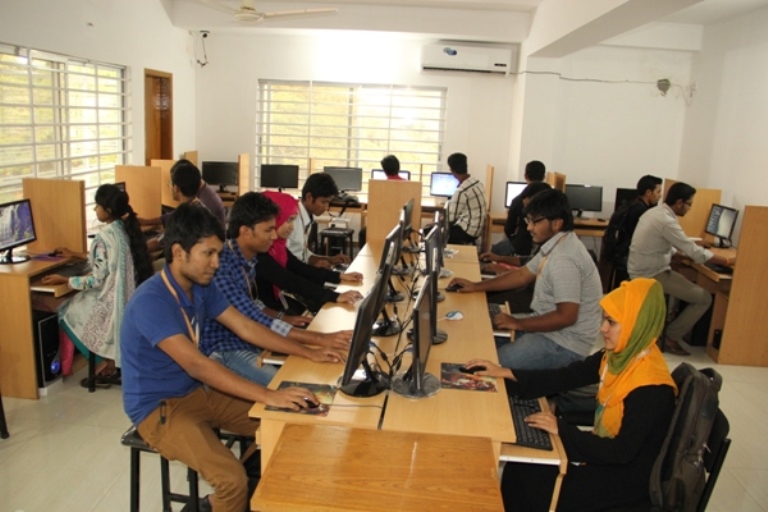
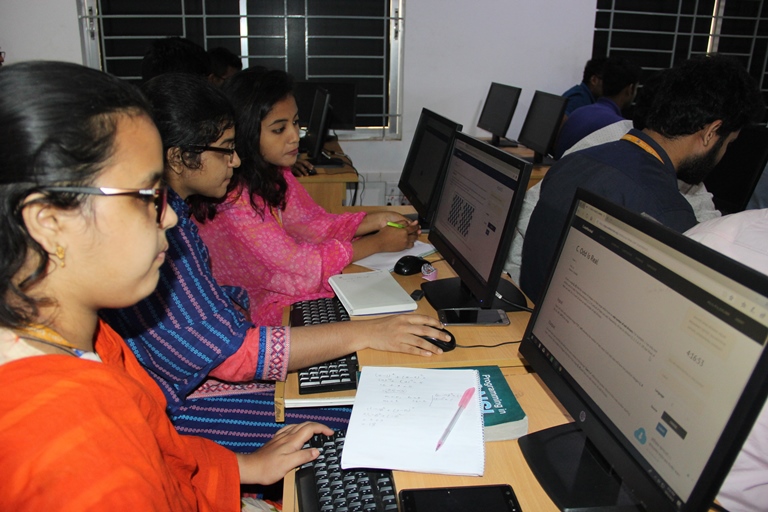
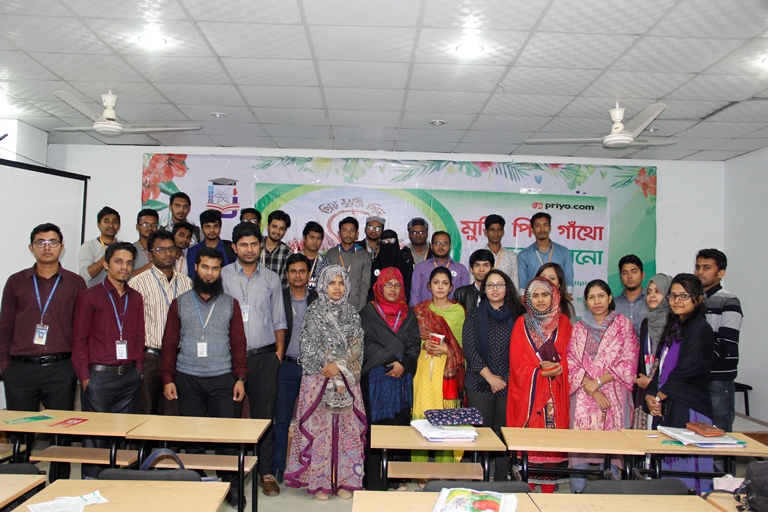
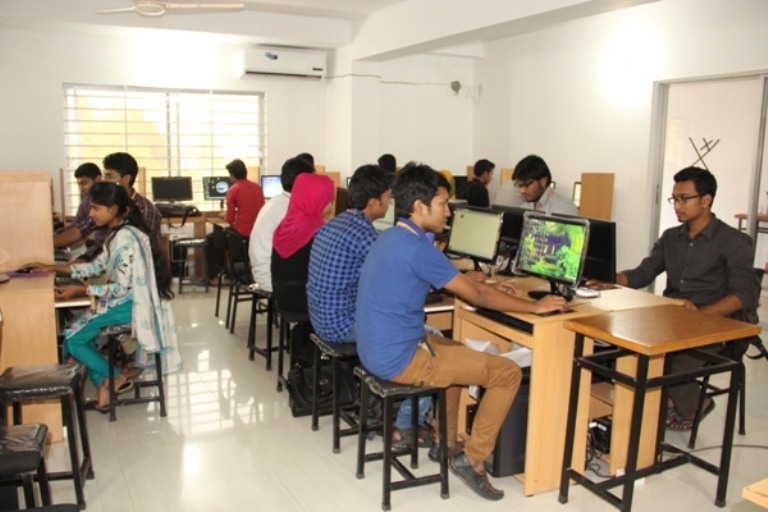
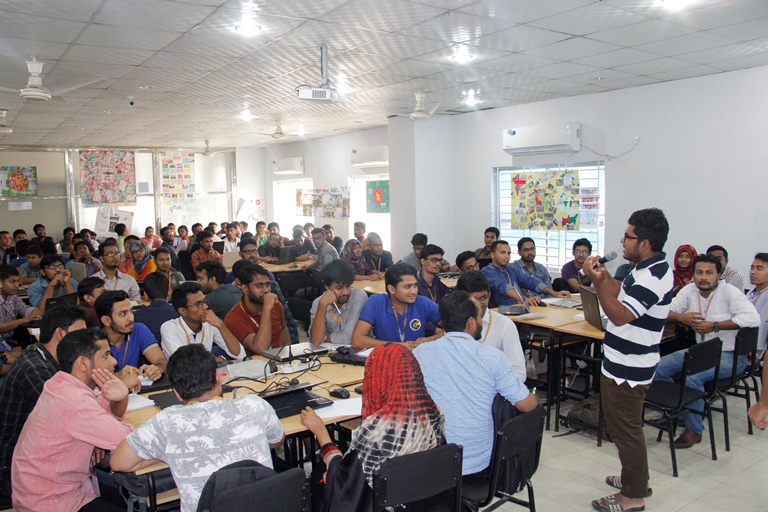
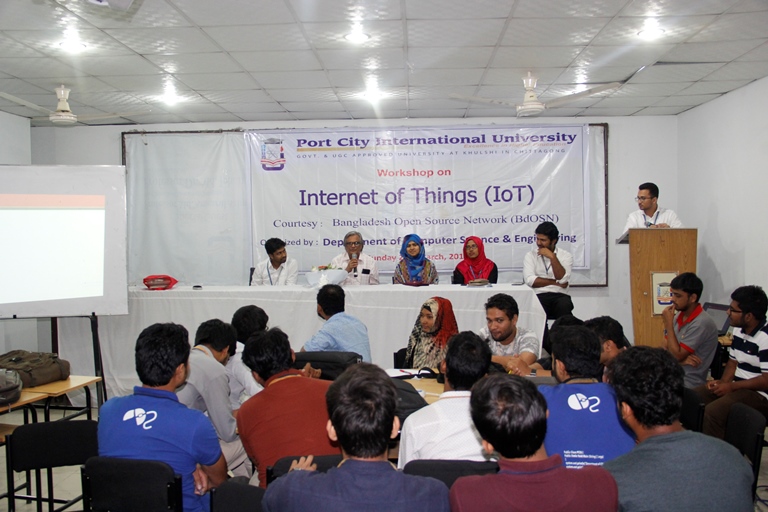
Tuition fees
Total Credit Hours: 156.0
Admission Fee (non refundable): Tk.18,000.00
Tuition Fee (per credit): Tk.2200.00
Total Fees: Tk.3,61,200.00(For student with H. S. C background)
Total Fees: Tk.3,28,200.00(For student with diploma background)
Admission Requirements
> Minimum GPA 2.50 in both S.S.C and H.S.C with science background or equivalent
> Minimum 5 subjects in O-Level and 2 subjects in A-Level with minimum grade of B in 4 subjects and C in 3 subjects from science group
Scholarship & Financial Assistance
> For meritorious and poor students from remote underdeveloped area.
> Special waiver for the children of freedom fighters
> Waiver on S.S.C. & H.S.C. results.
> Need based financial aid
Special Features
> Experienced Faculty members
> Multimedia classrooms
> Wifi campus
> Reach library facility
SYLLABUS
Academic Policies
BSc in CSE
Computer Science is a young and incentive discipline. As undergraduate students move through they are exposed to a wide range of subject matter within the discipline. Our degree courses give students a deeper understanding of the many diverse and interesting areas of computer science, preparing them for an industry or research oriented career path.
The degree courses offered by the department aim to:
- Provide fundamental software skills and professional IT values;
- Equip the graduate to develop software-based solutions to problems in a variety of contexts;
- Have curricula that conform to the highest international standards;
- Give a grounding in all the core areas of computer science;
- Emphasis the most state-of-the-art ways of engineering software to be used in the IT industry.
Discipline has included courses in the algorithmic foundations of computer science, introductory and advanced programming, net-centric computing, current systems, and operating systems, theoretical aspects of computer science, software engineering, distributed systems, artificial intelligence and computer and information security. Our Discipline has a strong practical laboratory component and students are expected to deliver a high standard of practical work.
We take pride in the many focused areas of research in which faculty and students are engaged, including Computational Intelligence, Information and Computer Security, Software Engineering and Software Architecture, Formal Methods and Computer Science.
M.Sc. in CSE
Computer Science is a young and incentive discipline. As undergraduate students move through they are exposed to a wide range of subject matter within the discipline. Our degree courses give students a deeper understanding of the many diverse and interesting areas of computer science, preparing them for an industry or research oriented career path.
The degree courses offered by the department aim to:
- Provide fundamental software skills and professional IT values;
- Equip the graduate to develop software-based solutions to problems in a variety of contexts;
- Have curricula that conform to the highest international standards;
- Give a grounding in all the core areas of computer science;
- Emphasis the most state-of-the-art ways of engineering software to be used in the IT industry.
The MSc Programme of PCIU will give you specialist knowledge in the design, implementation and use of computing systems ranging from the components of a single processor to computer networks as vast as the internet. You will gain a solid foundation in theoretical understanding and learn a wide variety of practical. The department of CSE M.Sc programme has also expanded its curriculum to graduate levels by offering three graduate programs: Master of Science (M.Sc.) in Computer Science and Engineering, Master of Engineering (M.Engg.) in Computer Science and Engineering, and Master of Computer Applications.
